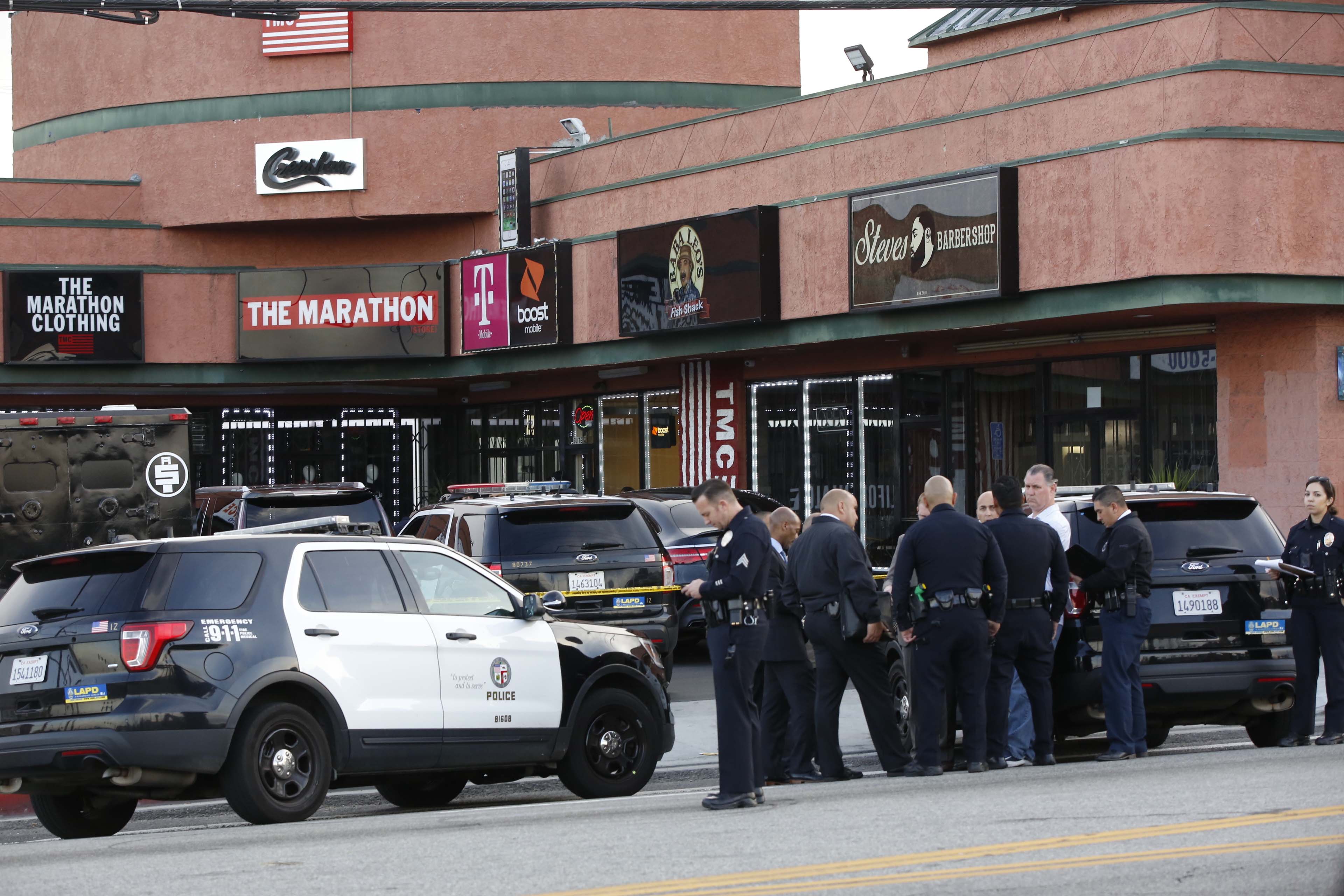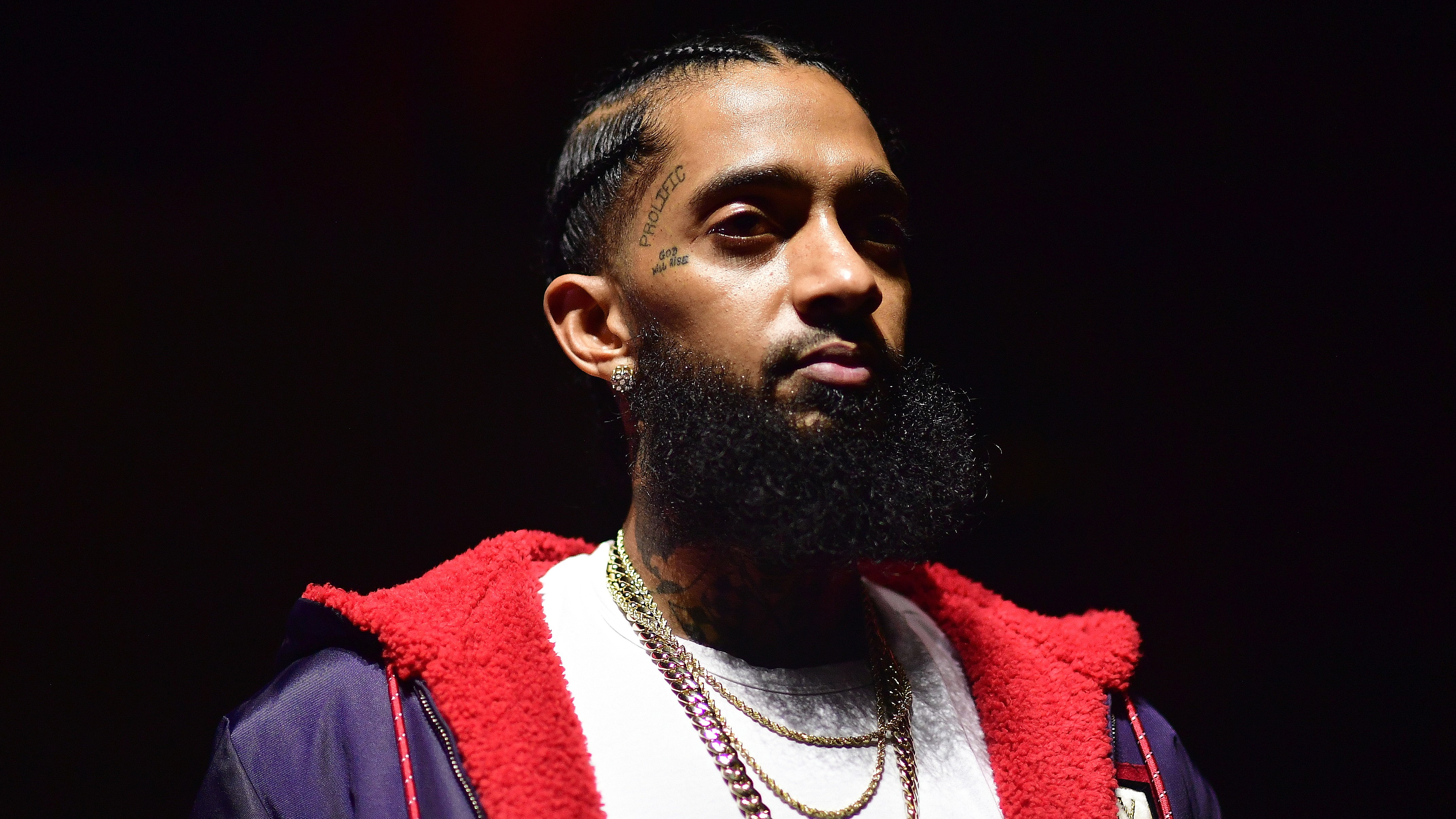The man convicted of murder in the shooting death of hip-hop artist Nipsey Hussle outside his South Los Angeles-area clothing store was sentenced Wednesday to prison.
Eric Holder, 32, received 60 years to life in prison. He was convicted in July of first-degree murder in the March 2019 shooting outside the 33-year-old rapper's Marathon clothing store in South Los Angeles. The Los Angeles County jury also found Holder Jr. guilty of two counts of attempted voluntary manslaughter for gunfire that hit other men at the scene.
Holder wasn't eligible for the death penalty. A sentence requiring him to remain in prison for the rest of his life was nearly guaranteed, but details of the term were determined at Wednesday's court proceeding in Los Angeles.
The defense read a letter in court from Holder's father, who expressed grief and agony knowing his soon took another person's life. He asked the judge send his son to a mental health facility for treatment.
Get top local stories in Southern California delivered to you every morning. >Sign up for NBC LA's News Headlines newsletter.
The judge agreed that Holder be housed in a prison facility that can address his mental health needs.
In a brief outburst as sentencing concluded, a friend of Nipsey's told Holder Jr. to "hit the road, Jack" as he was escorted from the courtroom. Holder did not appear to react. The friend was removed from the courtroom.
In December, a judge rejected a defense motion to reduce Holder's conviction to second-degree murder or voluntary manslaughter and turned down the defense's bid for a new trial.
Holder and Nipsey grew up with connections to the same South LA gang, the Rollin' 60s, prosecutors and defense attorney said during the trial. From there, the two men's live took different paths, prosecutors said.
Nipsey went on to become a famous record artist who was trying to better his community, prosecutors said. They portrayed Nipsey as having a close relationship with the South LA neighborhood where he opened his clothing store.
“This man was different,” Los Angeles County Deputy District Attorney John McKinney told jurors at trial. "He wanted to change the neighborhood. He kept the same friends. And the neighborhood loved him. They called him Neighborhood Nip.
“He was no longer a gangbanger. He was a world-known recording artist and so much more. It really is a shame that his life was so brutally and coldly taken, on his own property, in his own neighborhood, by someone from his own gang. By somebody that he considered a friend."
Holder's defense team said the shooting happened after a conversation in which Nipsey told Holder there were rumors of his role as an informant to authorities. They said the shooting happened in the "heat of passion" over the accusation in arguing for a lesser charge of voluntary manslaughter during the trial.
The trial included surveillance and police body-camera images of the shooting and stip mall area that was used to illustrate a narrative of the day. Video from a nearby parking lot showed the moment Holder appeared with guns and Nipsey collapsed to the ground.
Holder had left the scene for about 10 minutes before returning and opening fire. Prosecutors told jurors that it was plenty of time for premeditation as defined by the law.
The jury heard eight days of testimony in a trial that was delayed for a day following what Holder's attorney said was an attack in jail. Holder lost consciousness after being attacked in a jail holding cell with other inmates, his attorney said.
Holder, who did not testify in his own defense, was arrested two days after the killing. His attorney said he surrendered at a mental health clinic in Bellflower.
Nipsey's death led to days of mourning, including an April 2019 memorial service attended by thousands, including many Los Angeles celebrities who paid tribute to the hip-hop artist.
A letter from former President Barack Obama was read during the service at Staples Center.
"While most folks look at the Crenshaw neighborhood where he grew up and see only gangs, bullets and despair, Nipsey saw potential," Obama wrote. "He saw hope. He saw a community that, even through its flaws, taught him to always keep going.''
Nipsey was posthumously honored with two Grammy Awards in 2020 for best rap performance for "Racks in the Middle'' and for best rap/sung performance for "Higher.''



